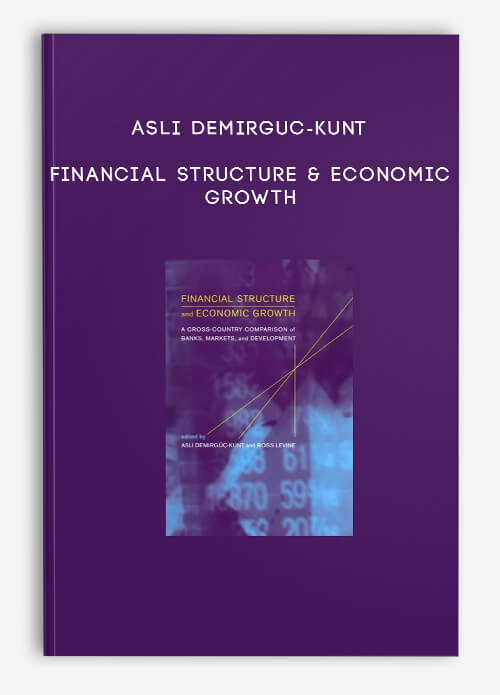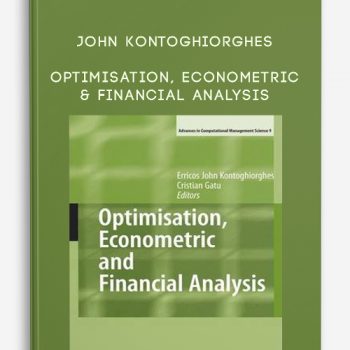
Asli Demirguc-Kunt – Financial Structure & Economic Growth
Description
This is the first broad cross-country assessment of the ties between financial structure—the mix of financial instruments, institutions, and markets in a given economy—and economic growth since Raymond Goldsmith’s 1969 landmark study. Most studies focus on developed countries and compare bank-based and market-based systems. Debates over the relative merits of the two systems have relied on case studies of Germany, Japan, the United Kingdom, and the United States, countries with similar long-run growth rates. The absence of data on developing countries limits the usefulness of such studies for policy makers.
The book contains recently acquired cross-country data from almost 150 countries. It includes information on the size, efficiency, and activity of banks, insurance companies, pension and mutual funds, finance companies, and stock and bond markets. It also incorporates information on each country’s political, economic, and social environment. The chapters contain a mix of case studies, cross-country studies, macro- and micro-oriented approaches, and analytical and empirical work. The conclusions point not to markets versus banks, but to markets and banks. It is how well a financial system functions that is critical for long-run economic growth. The research suggests that strong legal rights for outside investors and the overall efficiency of contract enforcement are effective tools for developing the financial sector and the economy. The book includes a CD containing World Bank data.
ABOUT THE EDITORS
Asli Demirgüç-Kunt is Director of Development Policy in the World Bank’s Development Economics Vice Presidency and Chief Economist of the Financial and Private Sector Development Network (FPD). She is the coeditor of Financial Structures and Economic Growth: A Cross-Country Comparison of Banks, Markets, and Development (MIT Press, 2001).
Ross Levine is the Willis H. Booth Chair in Banking and Finance at the University of California, Berkeley, and Senior Fellow at the Milken Institute.
Financial Development Course
Financial development means some improvements in producing information about possible investments and allocating capital, monitoring firms and exerting corporate governance, trading, diversification, and management of risk, mobilization and pooling of savings, easing the exchange of goods and services.













Lord –
This is Digital Download service, the course is available at Coursecui.com and Email download delivery.